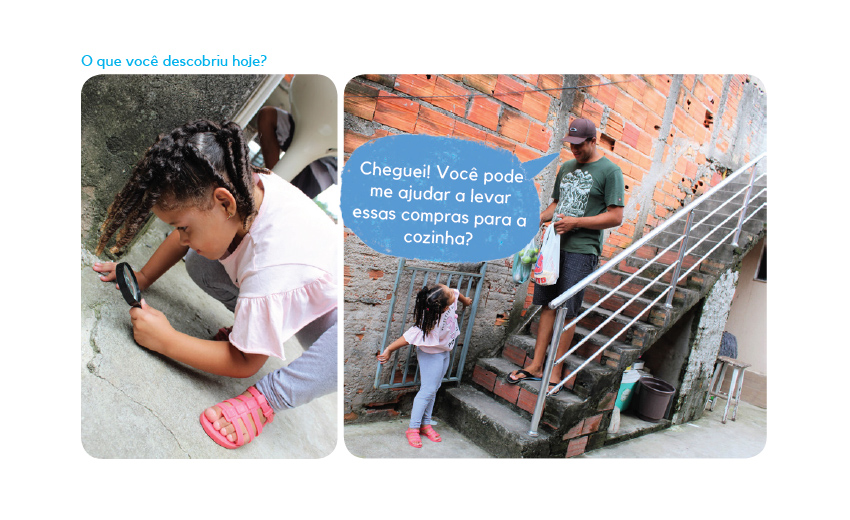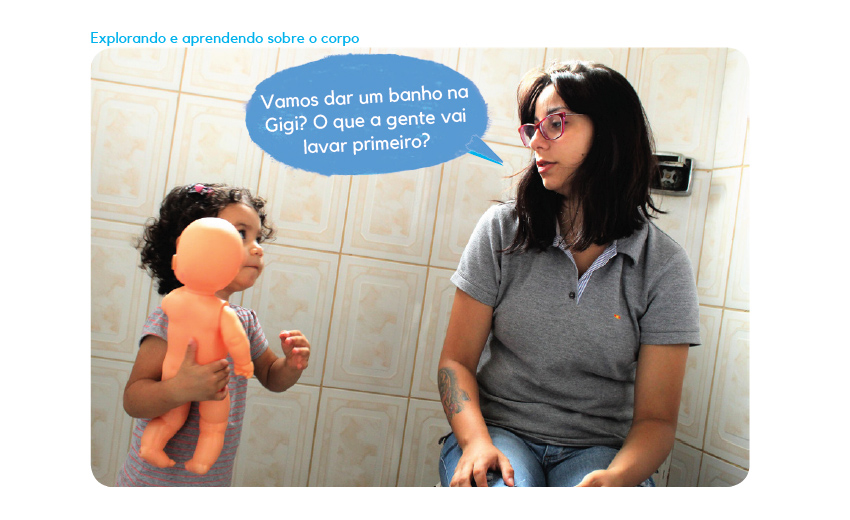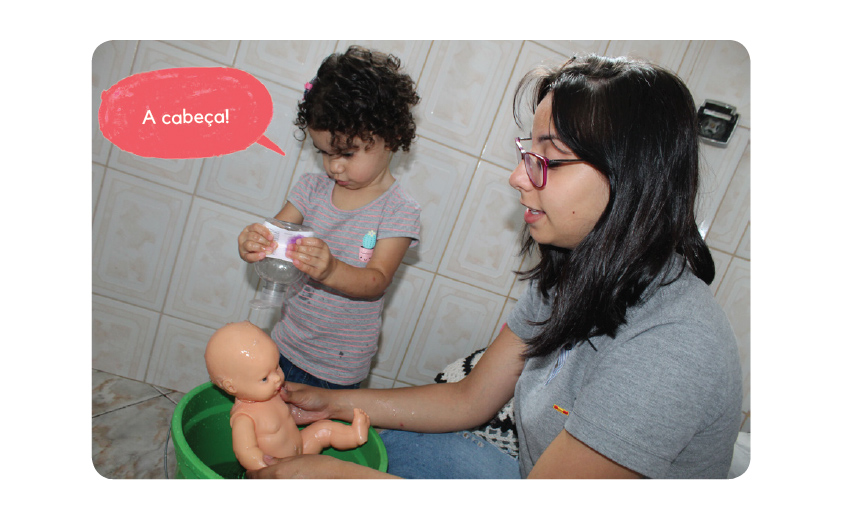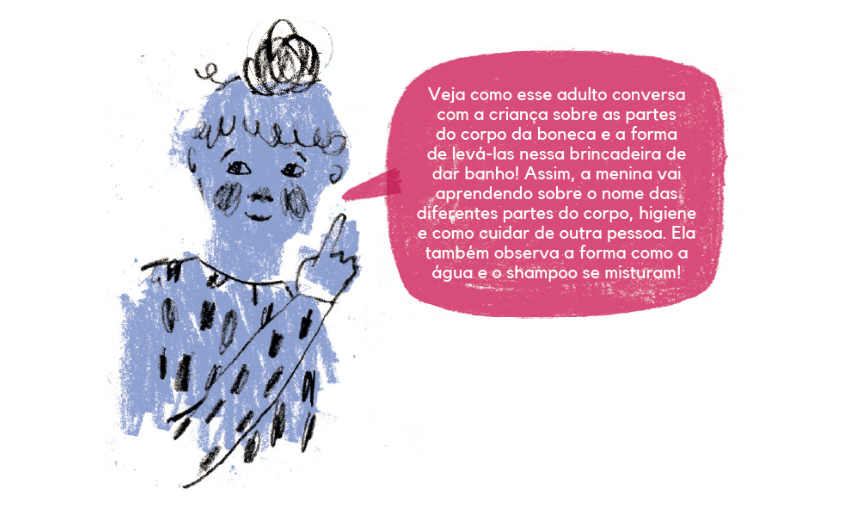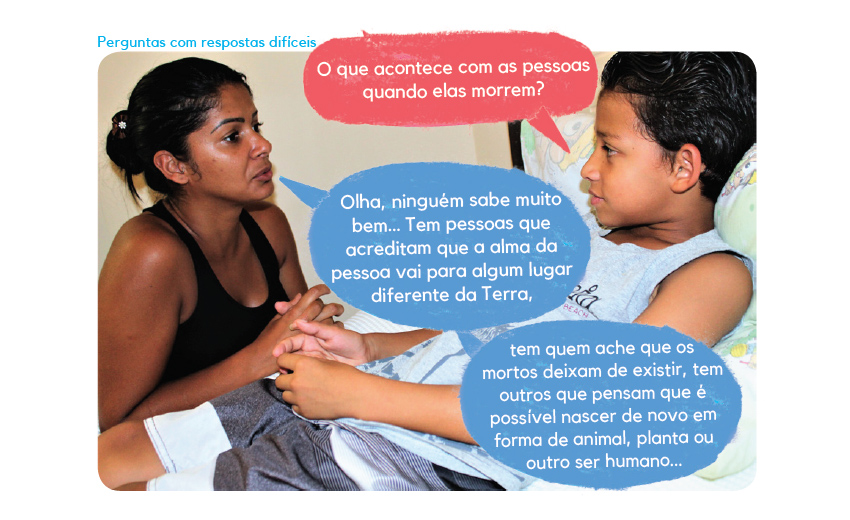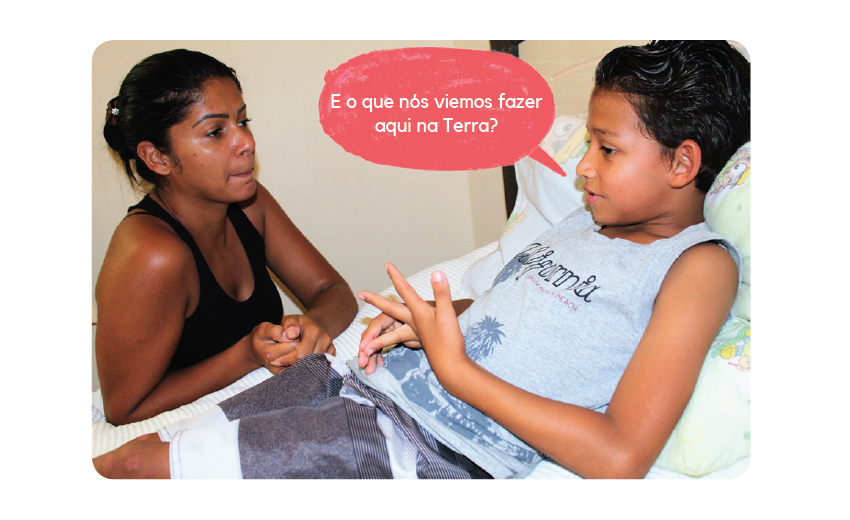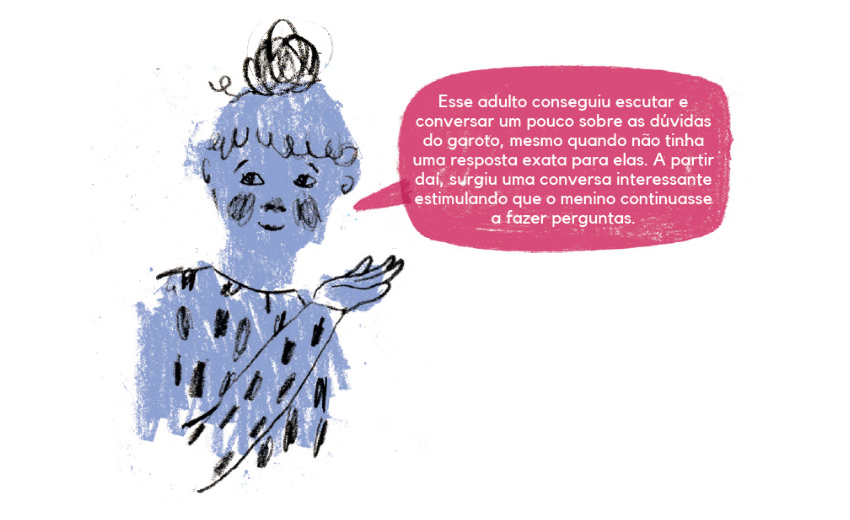29 de janeiro de 2020
O mundo, com suas tantas pessoas, lugares, ideias, culturas, animais, plantas e coisas, é um prato cheio para os nossos olhos curiosos. Se nós, adultos, vivemos em busca de respostas para as nossas perguntas sobre as situações que vivemos, imagine como são estimulados os pequenos, que ainda estão conhecendo e tentando entender o mundo em que vivem!
Uma das maneiras mais eficientes de saber sobre algo que desperta o nosso interesse é perguntar sobre o assunto a pessoas que têm mais conhecimento para falar sobre ele. Quem convive mais de perto com as crianças tem de lidar com perguntas inesperadas e até difíceis de serem respondidas. Nesse momento, podem surgir muitas dúvidas sobre o que dizer e como fazer isso.
Responda o que sabe e admita o que não sabe
Optar pela sinceridade, oferecendo algumas respostas, mas admitindo também o que não se sabe, ensina às crianças que ninguém tem respostas prontas para tudo, mas que podemos fazer disso uma oportunidade para buscar novos conhecimentos.
Além disso, nem sempre todas as questões dos pequenos exigem respostas longas e profundas. Muitas vezes, um simples “sim” ou “não”, sem detalhes e explicações demais, satisfazem a necessidade das crianças naquele momento.
Elas fazem perguntas não só para explorar um interesse, mas também para entender melhor aquilo que sentem e, algumas vezes, precisam repetir, de novo e de novo, alguns questionamentos.
Existe ainda uma função bastante interessante que surge quando as crianças descobrem que as perguntas produzem efeitos sobre os adultos: o poder de se sentir no controle. Manter uma conversa por meio de uma sequência de perguntas, interromper um diálogo do qual não estão fazendo parte ou até encontrar uma forma de atrair a atenção para si mesmas (“Mamãe, posso te dar um beijo?”, “Olha, tia, eu comi tudinho, não é?”) são alguns exemplos disso.
Responder ou devolver a pergunta para a criança?
As perguntas carregam fantasias, medos, intenções, teorias, e é muito importante que os adultos tentem entender como elas são despertadas nas crianças e quais ideias estão sendo construídas por elas. Para isso, muitas vezes, em vez de já ofertarmos uma resposta imediata, podemos devolver a pergunta aos pequenos: “E o que você pensa sobre isso?” ou “Por que isso desperta sua curiosidade?”. A partir do que nos apresentam, podemos também decidir o melhor modo de responder e até onde ir com nossa resposta, procurando sanar a curiosidade do momento e permitir que as crianças continuem pensando e investigando.
Estimule a curiosidade
Também cabe aos adultos incentivar a curiosidade infantil por meio das mais diversas experiências com o mundo: circular por espaços públicos permitindo que conheçam pessoas diferentes; garantir muitos momentos na rotina dos pequenos para as brincadeiras que, por vezes, tornam-se boas pesquisas (como observar o movimento de animais, das plantas); instigar o acompanhamento do crescimento de uma planta; manusear areia, pedrinhas; andar descalços sobre a grama; e tantas outras situações.
Com os bebês, importa ofertar pedaços de diferentes frutas para que eles experimentem os sabores que possuem ou ainda oferecer um mesmo alimento de formas diferentes, como uma maçã em pedacinhos, raspada e cozida.
Com os maiores, uma ida à biblioteca ou a consulta a páginas da internet pode permitir a observação de imagens ou mesmo a leitura de informações (algo que pode ser feito pelo próprio adulto) sobre os mais diferentes temas, desde curiosidades sobre um animal até a apreciação de crianças vivendo em diferentes culturas, para citar algumas possibilidades.
Contextos diversos permitem que as crianças observem, explorem, questionem e conversem sobre tudo o que está à sua volta.
Explorar e questionar em diferentes idades
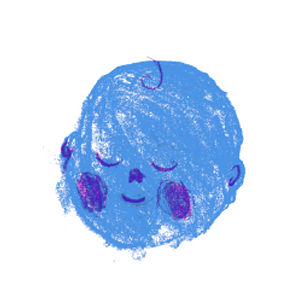
Até 2 anos
Os bebês exploram o ambiente observando pessoas e animais, brincando e levando objetos à boca, apontando, percebendo diferentes gostos dos alimentos, sentindo variações de temperatura com os pés ou na hora do banho, experimentando movimentos e posições do corpo, entre outros.

Até 4 anos
Nessa fase as crianças começam a fazer muitas perguntas sobre o que observam e experimentam. Criam ideias a respeito de como as coisas funcionam, de como as pessoas e os animais são e de que modo vivem. Ganham maior autonomia em relação ao próprio corpo e seus movimentos: pulam, correm, escalam…
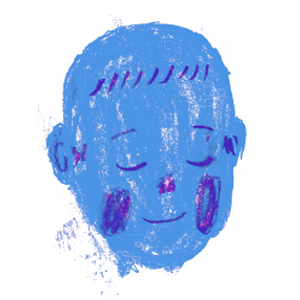
Até 6 anos
A partir do que observaram e experimentaram até aqui, as crianças compreendem melhor o mundo à sua volta e passam a fazer perguntas mais elaboradas. Questionam as relações entre as pessoas, a origem das coisas e outros assuntos mais complexos, como a morte, o funcionamento da natureza e da sociedade ou o nascimento. Por meio da brincadeira de faz-de-conta, exploram os objetos e inventam diferentes formas de usá-los, além de experimentar personagens e papéis. Ficam mais atentas à maneira como os números e as palavras são escritos e utilizados no dia a dia.
Vamos conhecer algumas situações em que as crianças exploram, questionam e os adultos contribuem para isso?
O que você descobriu hoje?
Explorando e aprendendo sobre o corpo
Perguntas com respostas difíceis
Vídeos: Explorar e Questionar

